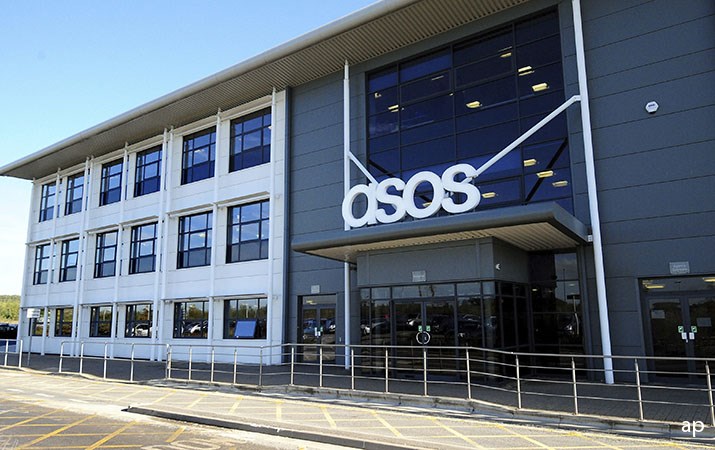
Making sales is great; increasing sales even better. However, what matters is making profits and preferably increasing them. To sell more and see profits fall is like running backwards: it is very wearing.
Online fashion retailer Asos (ASC) ramped up sales by 13% in the year to the end of August with the UK 15% ahead, but with strong growth happening in all areas of the world. Sounds great. Alas, this admirable momentum was achieved by squeezing margins, so pre-tax profits slumped by an alarming two-thirds to £33.1 million as restructuring costs also took their toll.
Net cash of £42.7 million disappeared to be replaced by £90.5 million of debt thanks to heavy spending on a global platform that will drive future sales growth. But this transformation proved disruptive, although you wouldn’t think so from the sales figures. The question is whether growth will continue to be at the expense of profit margins.
Asos shares jumped by more than a quarter to nearly £33, bringing some relief to beleaguered shareholders who had seen the value of their holdings lose more than half their value over the past 12 months. That is a real act of faith. It is perfectly reasonable to take a punt on the view that a turnaround has begun, though it is unlikely to be quite as dramatic as the turnaround in the wrong direction that occurred when this previously high-flying stock hit the buffers. Some punters clearly believe recovery has well and truly begun, as the shares gained another 4.8% the following day. Even so, I wouldn’t chase the shares any higher until there are genuine signs that increased sales mean increased profits.
WH Smith Expands
The retailer best known for its willingness to sacrifice sales where it can’t make a profit is WH Smith (SMWH), whose high street outlets have been allowed to run down and resources have been pushed successfully into train station and airport outlets.
Results for the year to August 31 showed revenue up 11% but profits were again mixed: travel trading profits rose 14% while the High Street was flat. Even in the better-performing travel arm, pre-tax profits – up 1% on a statutory basis and 7% underlying - are nowhere near keeping up with sales growth but at least Smiths isn’t going backwards. Shareholders like me will be reassured by the 8% rise in the total dividend.
Less clear cut its move into travel outlets in the US. The first salvo is working well. The integration of InMotion, acquired last year, is complete and is said to be performing ahead of initial expectations. Smith is so enthusiastic that it is now paying £312 million for US travel retailer Marshalls Retail, which will more than double Smith’s international side.
Nearly half the price will be paid from a placing of 7.2 million Smith’s shares at £21.50 each. Smiths has just completed a £31 million share buyback, albeit at lower prices than the placing. After taking into account advisers’ and traders’ fees, I wonder if the buyback was worth the effort. Perhaps Smith could enlighten us what the net profit was.
Overseas markets, and the US in particular, has been a graveyard for UK retailers. Domino’s Pizza (DOM), in which I also hold shares, is admitting defeat and selling its operations in various parts of Europe. Investors rightly have given the move the thumbs up. I shall watch anxiously for any signs that Smith’s foray abroad is unravelling.
Come Say Hello
There will be no column next week as I will be speaking at the London Investor Show – any users of the Morningstar website who are attending are welcome to come and talk to me whenever I am free. Please don’t hesitate to say hello.






























